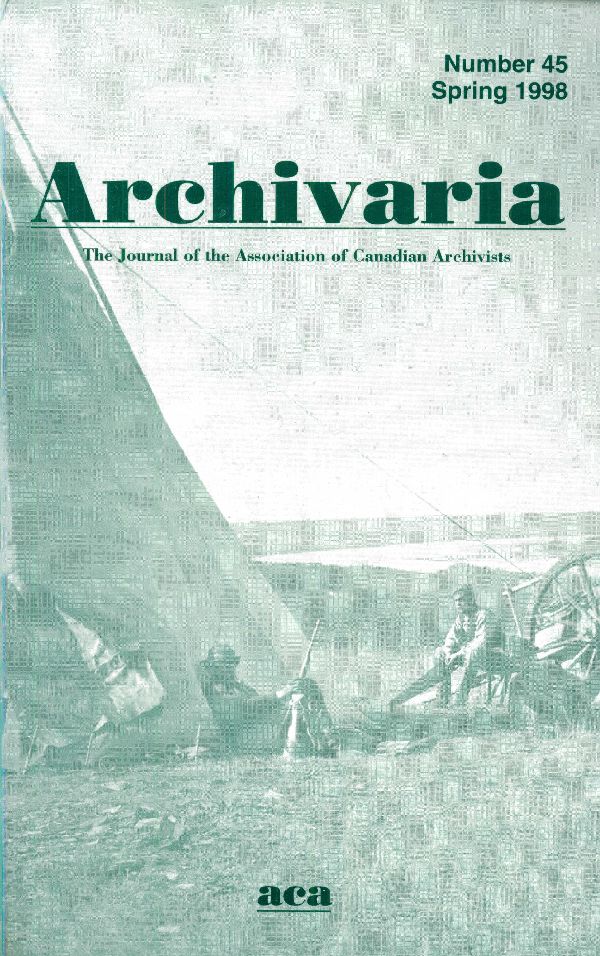Old Myths in New Clothes: Expectations of Archives Users
Résumé
This article discusses public service issues for archives within the new electronic environment, given a clientele increasingly conditioned, in particular, by expectations raised by the Internet. The article suggests the importance of standing back objectively to analyze the true potential of archives in an electronic world. It begins by discussing access to archives material from remote sites within its historical context and briefly reviews market promotion surrounding electronic access, suggesting that its messages are neither totally new nor entirely disinterested. It suggests, however, that we carefully rethink archives' place in an information marketplace. The author contends that the proliferation of computer and communications technologies provide an unprecedented opportunity for archives to extend our client base (while remaining true to core values)--providing that we reach out to new clients, including even casual visitors roaming cyberspace without a set purpose beyond exploration. Archives may secure a special niche in the growing market of electronic information if careful attention is paid to designing services catering to the many levels of interest and knowledge. User studies and effective research tools will make service adjustments matters less of chance than purposeful planning.
RÉSUMÉ
Cet article aborde la question du service offert au public par les dépôts d'archives dans un nouvel environnement informatique alors que l'Internet multiplie les attentes de la clientèle. Il traite de l'importance de garder une distance objective pour analyser le potentiel réel des archives dans cet univers informatique. On discute d'abord de l'accès à distance aux documents d'archives dans leur contexte historique pour passer ensuite en revue le marketing destiné à promouvoir l'accès informatique, effort dont les messages ne sont pas totalement nouveaux et encore moins désintéressés. On suggère toutefois de repenser minutieusement la place des services d'archives au sein de ce marché de l'information. L'auteure soutient que la multiplication des technologies de l'ordinateur et des communications crée des opportunités sans précédent aux archives en permettant d'élargir la clientèle -- tout en demeurant fidèles aux valeurs essentielles -- à la condition que l'on rejoigne ces nouveaux usagers et ces fureteurs occasionnels du cyber-espace qui errent sans autre objectif défini que celui d'explorer. Les dépôts d'archives peuvent occuper un créneau spécial au sein de ce marché croissant de l'information électronique en portant une attention particulière à la création de services pouvant répondre à tous ces niveaux d'intérêt et de connaissance. Des études de clientèle et des outils de recherche appropriés permettront des ajustements du service au public, changements non plus laissés au hasard mais réalisés sur la base d'une planification réfléchie.
Authors of manuscripts accepted for publication retain copyright in their work. They are required to sign the Agreement on Authors' Rights and Responsibilities that permits Archivaria to publish and disseminate the work in print and electronically. In the same agreement, authors are required to confirm that "the material submitted for publication in Archivaria, both in its paper and electronic versions, including reproductions of other works (e.g. photographs, maps, etc.) does not infringe upon any existing copyright." Authors of manuscripts accepted for publication retain copyright in their work and are able to publish their articles in institutional repositories or elsewhere as long as the piece is posted after its original appearance on archivaria.ca. Any reproduction within one year following the date of this agreement requires the permission of the General Editor.





